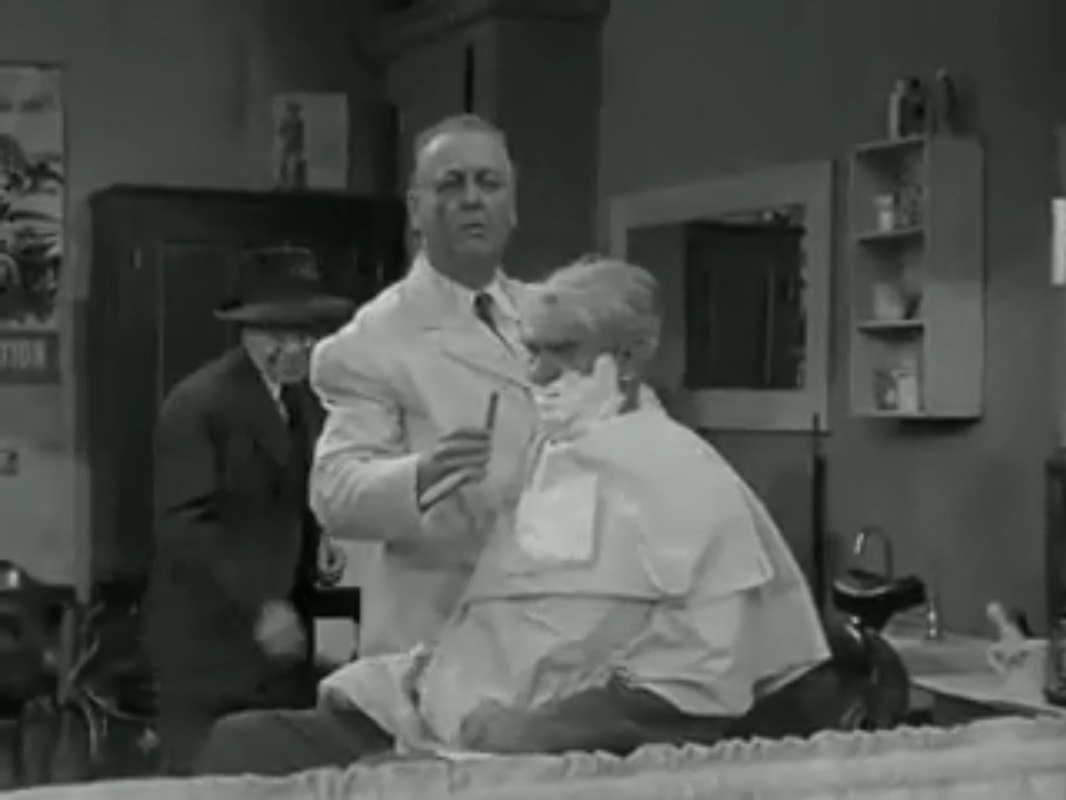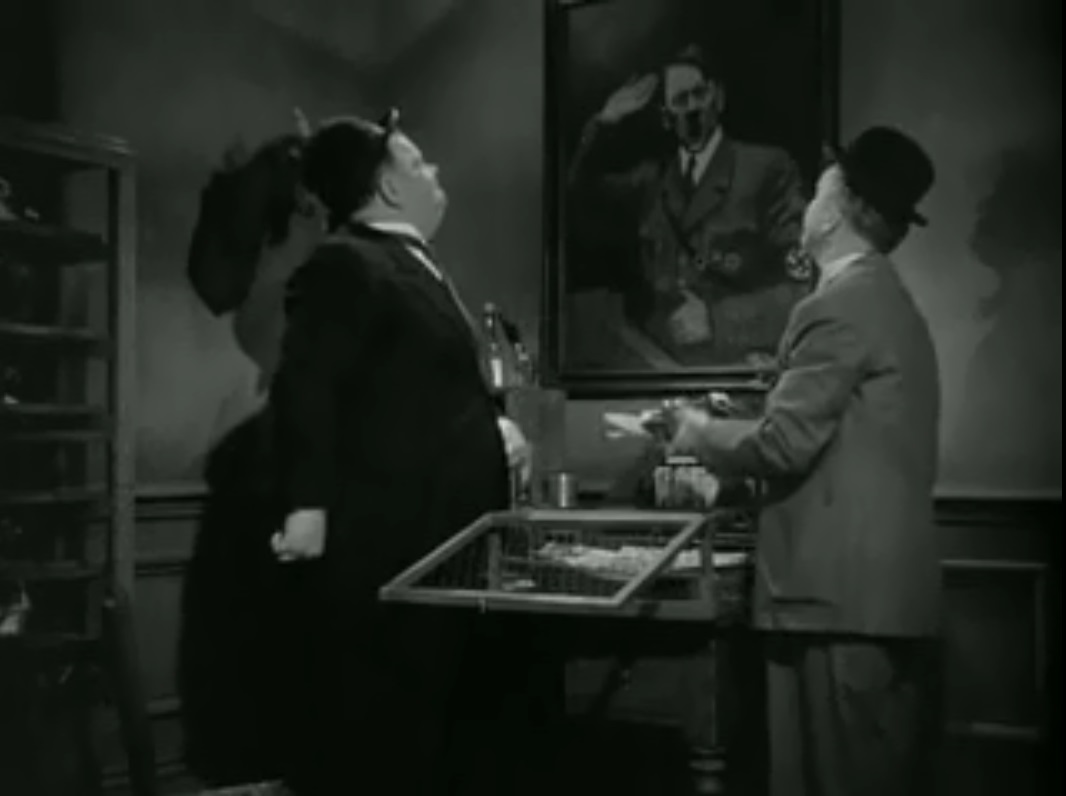The
Cameraman
The baseball
sequence, in which Keaton finds himself all alone at the Polo Grounds,
concludes with a face-first slide into home plate, the camera reveals he’s not
alone, and this is identical to a gag in Go West, raising or debunking the
question of directorial credit.
A print said to
come from Warner Brothers adds an opening title on the difficulties of
restoration and the importance of film preservation, but if run at the wrong
speed...
Keaton in New
York was distinctly remembered by Minnelli, a great student of silent film
comedy, in The Clock, which though it also is a masterpiece only deals
with its original by reflection, the crowded swimming pool becomes the train
station, the staircase gag is adroitly transposed into the crane shot down a
spiral staircase, etc.
The
organ-grinder’s monkey gives the best performance in all of Keaton’s work up to
that time, of a certainty, which is a great tribute to Keaton’s superlative
skill with actors, and to the monkey.
Spite Marriage
For a fast,
furious comedy it begins slowly with the hero’s adulation (a newspaper reports
his name as Elmer Gantry) of a stage actress in love with her leading man, in
love with a society blonde.
The first half
rises to the wedding night, and ends the following morning. The surreal
transformation of the second half into sea robbers and an oceangoing yacht
attains the greatest speed, the film ends quietly with the marriage resumed in
earnest.
Minnelli
presumably studied it deeply for I Dood It.
An excellent
continuous score, with sound effects and crowd noises, was provided by M-G-M.
Poor silly
Mordaunt Hall of the New York Times said it was good silly Buster Keaton
fun and couldn’t quite follow it.
Speak Easily
College professor
Keaton goes to a speakeasy for the first time. “Speak easily,” he says, correcting those in his party.
A calm, quite
sane, very funny and highly satisfying satire of Sternberg’s The Blue Angel,
executed with the most superb acumen and the greatest zeal by two actors whom
the critic George Bernard Shaw would hardly for a moment hesitate to describe
as “hardened comedians”.
Riding on Air
The hopeless
gadgeteer (Joe E. Brown) gets a miracle of inspiration and saves the day.
Sedgwick’s film
is suitably complicated for this, the metaphor is an investment and partnership
in the Radio Beam Plane Co., somebody else does the flying.
Two rival Chicago
newspapers (our man runs the Claremont Chronicle of Wisconsin, more or
less ineptly), the Crunchies essay contest, a superb con man dealing in phony shares,
the girl next door and her disapproving father, and the big story from the big
city about a perfume-smuggling ring.
Air Raid Wardens

Laurel &
Hardy, Inc., Ltd., “they’re a wonderful front.”
They have failed
in fertilizer (Chickens Come Home,
dir. James W. Horne) and pets (Laughing Gravy) and are reduced to
bicycles. They close up shop “to fight the Japs” and
are rejected.
It’s a small
town, Huxton, and gets its ode (the newspaper editor
is named Civilian Defense Director).
They reopen with
a partner in radios (cf. Tennessee
Williams’ The Glass Menagerie, dir. Irving
Rapper or Anthony Harvey or Paul Newman), one Middling, a Nazi spy. They stick bills “for the war effort.”
Their stint as
air raid wardens is catastrophic (defense of the town against its leading
citizen, J.P. Norton, cf. Capra’s Meet John Doe), they are dismissed in
great sadness (“we’ll do anything that Uncle Sam wants us to do, won’t we,
Ollie”) and then stumble on a plot to dynamite the town’s new plant (Ajax
Magnesium Corporation). “Bring help at once, we mean
it, oygent!” The great
William Tell gag, told at gunpoint to shoot an apple off Ollie’s head, Stanley
tells him goodbye and pulls the trigger, it flies into the mouth of the Fuhrer’s
portrait on the wall behind.
They ride to the
rescue in a tireless jalopy that goes off the road (“I got something in my eye,
take the wheel!”) and hits a tree, a high-stepping farm nag tows them in.
The beauty of the
imagery makes for the construction. Fertilizer means politics, pets are the
last friends, bicycles are for refugees (the Wright brothers are nevertheless
invoked), Uncle Sam says no, the enemy is here. Undoubtedly
the model for De Sica’s Ladri de Biciclette.
Skretvedt, whose
otherwise useful book dismisses all Laurel and Hardy that is not Roach,
breathes hard on this one, too. T.S. of the New
York Times adopted a vein of sophistication like a lapdog for a shitsack
(and reported the audience “laughing their heads off”), Variety was
extraordinarily astute (Skretvedt cites a snippet). Leonard
Maltin, “weak”. TV
Guide, “it does have its moments.”
